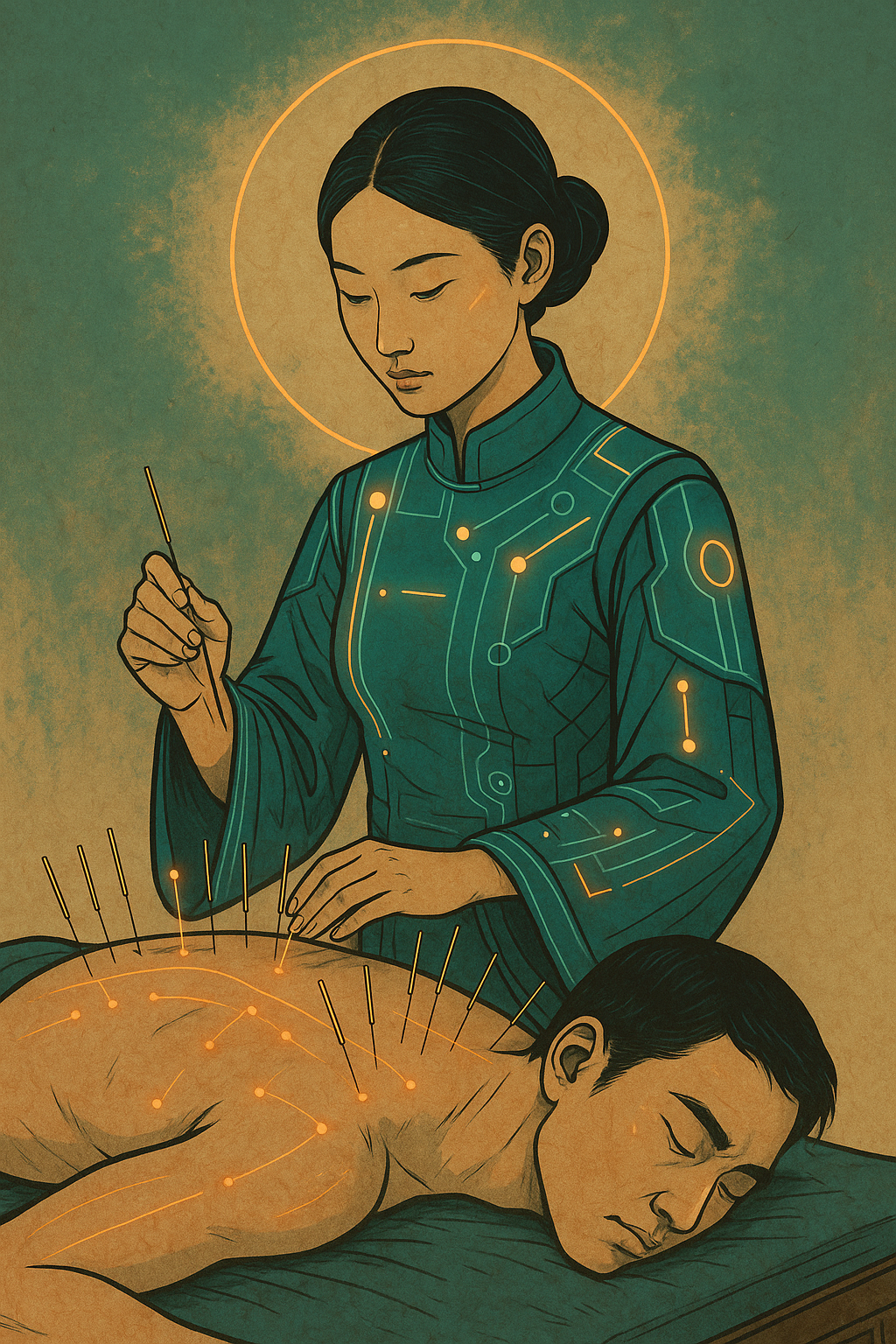This article explores the history and modern science behind acupuncture, a traditional Chinese method of healing. Acupuncture has been used for thousands of years. At first, people used sharp stones or bones as needles. Over time, it became a well-organized system, especially during the Ming Dynasty in China. One important book from that time explained where to place the needles and how they affect the body.
In Traditional Chinese Medicine (TCM), the body is believed to have special energy pathways called meridians, through which a life force called qi flows. Small branches of these meridians, called collaterals, connect everything in the body. If qi flows well, you stay healthy. If it gets blocked, you feel pain or get sick. Even though Western science doesn’t see meridians the same way, some researchers believe they might relate to nerves or blood vessels.
The second part of the article looks at modern research. Scientists have found that acupuncture might affect how your nervous and hormonal systems work. For example, it can influence glands in your brain and body, like the pituitary or adrenal glands. These glands control stress, pain, and even your metabolism and mood.
Studies suggest that acupuncture can help reduce pain, stress, and inflammation, and may even boost your immune system. Brain scans show that acupuncture activates certain brain areas and helps release natural “feel-good” chemicals like endorphins.
However, not all studies agree. Some results are mixed, especially when fake acupuncture (placebo) is tested. Still, many people use acupuncture today for things like back pain, migraines, anxiety, and digestion issues. More and more doctors in the West are starting to accept it as a helpful complementary therapy used alongside regular treatments.
The authors say we need more research that combines the old Chinese ideas with modern science. Acupuncture might not be magic, but it has real effects that we’re just beginning to understand.




